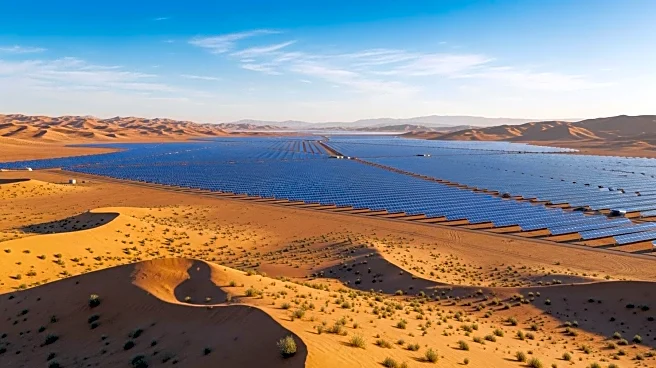What's Happening?
Recent research from China indicates that large-scale solar panel projects in desert regions are having significant ecological impacts. These solar farms, while primarily aimed at generating clean energy, are also altering the local environment by cooling the air, trapping moisture, and promoting vegetation growth in previously barren areas. The study, conducted at the Gonghe Photovoltaic Park in Qinghai, used a comprehensive model to assess ecological changes, finding improved conditions under the solar panels compared to surrounding areas. This suggests that solar infrastructure, if designed thoughtfully, can offer environmental benefits beyond energy production.
Why It's Important?
The findings highlight the potential for renewable energy projects to contribute to environmental restoration, challenging the notion that such developments are purely utilitarian. By creating microclimates that support plant and microbial life, solar farms could play a role in rehabilitating degraded ecosystems. This has implications for how renewable energy projects are planned and implemented, emphasizing the need for designs that consider ecological impacts. The study also raises questions about the broader role of renewable energy in addressing environmental challenges, suggesting that with careful management, these projects can provide dual benefits of energy production and ecological enhancement.
Beyond the Headlines
The research underscores the importance of integrating environmental considerations into the design and operation of renewable energy projects. It suggests that solar farms could serve as models for sustainable development, balancing energy needs with ecological preservation. However, the study also cautions that the long-term impacts of such projects require further investigation, as not all desert environments may respond similarly. The findings could influence future policy and investment decisions in the renewable energy sector, encouraging a more holistic approach to project development that prioritizes both energy efficiency and environmental health.









